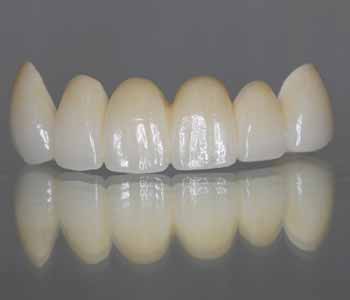

09
Jan
Healthy-savvy patients in Glen Allen, VA choose zirconia implants treatment

There was a time when patients took the recommendations of their doctors without question. Today’s healthcare consumer is well-informed and becomes an integral part of treatment planning. Many of them in the Glen Allen, VA area are choosing zirconia dental implants, for treatment that is both biocompatible and aesthetic.
Dental implant basics
Each tooth in your mouth has roots that extend into the jawbone, forming a symbiotic relationship. Bone anchors the root, holding the tooth in place. In turn, through repeated bite pressure, the root signals the body to send minerals and nutrients that keep bone strong. When a tooth is lost, this vital cycle is broken, with far-reaching effects on appearance, oral health, and whole-body wellness (due to impaired chewing function and digestive impact).
A dental implant replaces the root of a missing tooth – not the crown portion visible above the gum line. While a partial denture or dental bridge replaces the crown, only an implant serves the same dual purposes as a natural tooth root.
Once the bone has solidly fused with the implant, it is topped with a porcelain crown for a replacement tooth that looks, feels, and functions normally. In some cases, an implant can be placed at the time a problematic tooth is extracted, and immediately “loaded” with a crown, so that you don’t have to go without a tooth during the period of osseointegration. Several dental implants can be placed to secure a full denture, or to hold a multi-tooth bridge without involving adjacent healthy teeth.
Why choose metal-free implants?
Archeological evidence shows that for thousands of years mankind has attempted to replace missing tooth roots . . . without success. The concept of the “modern” dental implant, however, arose from osteopathic research in the 1950s. A Swedish surgeon studying bone regeneration discovered that tissues readily accepted titanium and fused to it. This metal became the standard for dental implants.
REQUEST AN APPOINTMENT
However, as implants got more popular, the root forms became available from many suppliers utilizing a variety of alloys – titanium mixed with other metals to reduce cost and alter the physical properties of the end product. The percentage of our population with a true titanium sensitivity is low – less than one percent. Yet that figure still represents several million individuals, and it is increasing because of allergy to other metals in alloys.
If your body reacts to a ring or necklace or earrings with a rash, you simply take the jewelry off and in a few days your skin heals. A dental implant, however, is embedded within your body. A reaction may occur immediately, but more often it develops over time. The surgical site may not heal promptly, or bone does not integrate, causing the implant to fail. In the long term, fighting this inflammation 24/7/365 places a tremendous load on your body’s immune system.
A traditional dental implant is shaped something like a small screw. An abutment (post) is threaded into the top of the implant at the gum line. Then a crown or other prosthetic is affixed to the abutment. Harmful oral bacteria tend to collect in the area where the abutment and implant meet, increasing the risk of gum disease.
In addition, no matter what the alloy, a titanium dental implant is grayish in color. This can cause the restoration (crown) to look darker than natural dentition, or more opaque. If gum recession occurs, the implant is visible as a dark line at the gum.
Zirconia dental implants resolve these issues. The implant is made of a ceramic crystalline structure with incredible strength. Risk of sensitivity to this bioinert material is virtually nil, yet bone integrates nicely with it. Many zirconia implants are a one-piece design, eliminating the collection point for bacterial plaque. Since zirconia is white, it results in the most natural looking replacement tooth available.
Where to find zirconia implants treatment in Glen Allen, VA

Dr. Olivia Hart DDS & MD, IABDM is a member in good standing of the International Academy of Oral Medicine and Toxicology and the Biological Dental Association, and she has completed a doctorate program in naturopathy. Her practice, Virginia Biological Dentistry on Ridgefield Parkway in Glen Allen, VA is dedicated to providing the highest level of dental care with the safest available materials and techniques. Dr. Hart has advanced training in zirconia implants treatment, and she is experienced in both implant placement and restoration.
Dr. Hart and her team welcome new patients to learn more about the whole health benefits of biological dental care. Call (804) 381-6238 to schedule an appointment.










